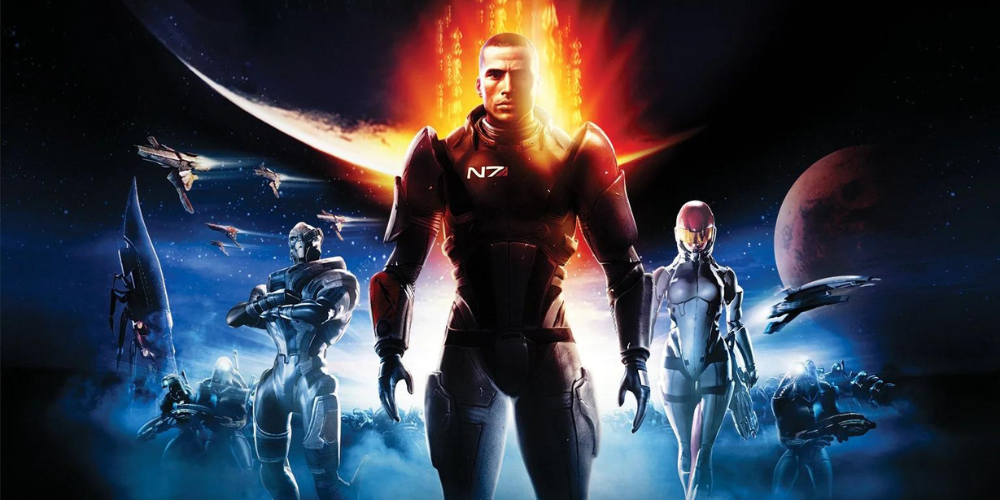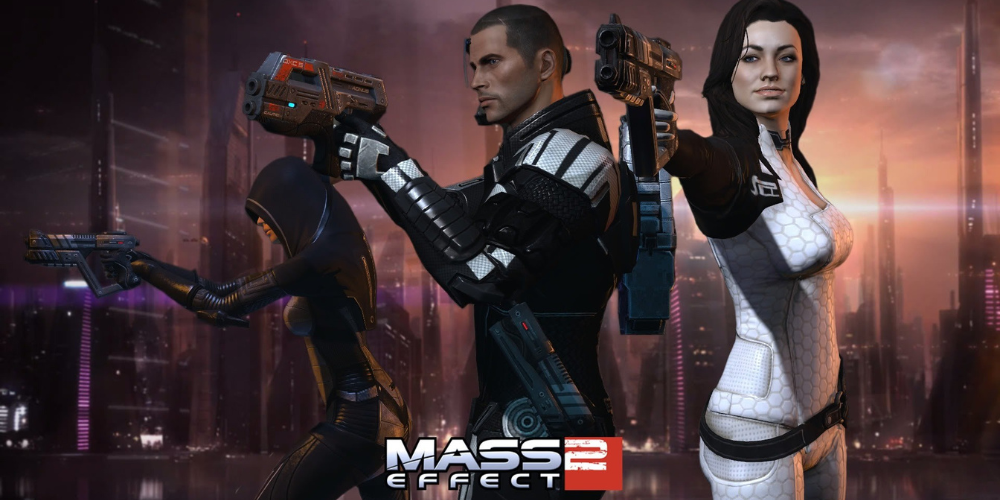The Mass Effect Series: A Journey through the Galaxy and Beyond
- 2023-07-03
- 216
The Mass Effect series is a critically acclaimed trilogy of action role-playing games, developed by Bioware and published by Electronic Arts. The series is set in the distant future where players, assuming the role of Commander Shepard, a human space marine, are tasked with saving the universe from a hostile alien species known as the Reapers. The games are renowned for their deep character development, branching narratives, and complex moral decisions that significantly alter the course of the story. Choices made throughout the series have a major impact on the plot, creating a unique and personalized player-driven experience. The game emphasizes relationships with NPC characters and includes romantic plot lines as well. The series consists of four main games, including "Mass Effect," "Mass Effect 2," "Mass Effect 3", and a standalone title, "Mass Effect: Andromeda."
"Mass Effect" (2007)

The journey through space began in 2007 with the release of the first game in the series, "Mass Effect". Developed by BioWare and published by Electronic Arts, this is where players first meet Commander Shepard, a character whose decisions shape the entire galaxy. The game centers around Shepard’s mission to stop the rogue Spectre, Saren, from conquering the galaxy with an army of mechanized beings known as Geth. Boasting vast universes to explore, engaging characters, and intriguing storylines, the first Mass Effect became a sensation, and the epic series began.
"Mass Effect 2" (2010)

The sequel, released in 2010, "Mass Effect 2," raised the stakes higher. The tale shifts to a darker tone as Commander Shepard has to team up with an organization known as Cerberus to combat a new threat—the Collectors, who have begun abducting entire human colonies. This sequel enhanced interstellar travel, strategic combat, and character development options, making the play more immersive. The narrative also became grittier, confronting deeper themes of mortality and self-sacrifice. The game received critical acclaim for its improvements and depth, solidifying its place in the series.
"Mass Effect 3" (2012)

Two years later 2012, "Mass Effect 3" was released. The epic trilogy concluded with an all-out war against the Reapers, an ancient machine race set on purging the galaxy of organic life. Shepard's every action and every decision from the previous games had repercussions that could tip the scales of the war. Even though it was somewhat overshadowed by controversy due to its original ending, the game received high praise for its gameplay mechanics and narrative depth.
"Mass Effect: Andromeda" (2017)
.png)
After a five-year hiatus, the series returned in 2017 with "Mass Effect: Andromeda." Shifting away from Shepard's story, Andromeda focused on a new protagonist—the Pathfinder. Set in the titular Andromeda Galaxy, players were tasked to find new homes for humanity. Although this was a bold step in a new direction, Andromeda received mixed reviews due to its numerous technical issues and less compelling storyline.
The Future of the Mass Effect Series
Speculation about the next installment in the Mass Effect universe is rife with rumors. With the release of the remastered Mass Effect Legendary Edition in 2021, fans hope this may be a sign of more adventures. The tease of a sequel was featured at The Game Awards 2020, which depicted a snowy landscape and an aging character many believe to be Liara T'Soni, a beloved character from the original trilogy. It seems that the next game might connect the original series and Andromeda in some way, given that BioWare has stated that the teaser "imparts a foundation of hope for the future of Mass Effect." As we wait for official news on the continuation, players can only anticipate what the future holds for this legendary space-operatic franchise.






Leave a comment
Your comment is awaiting moderation. We save your draft here
0 Comments